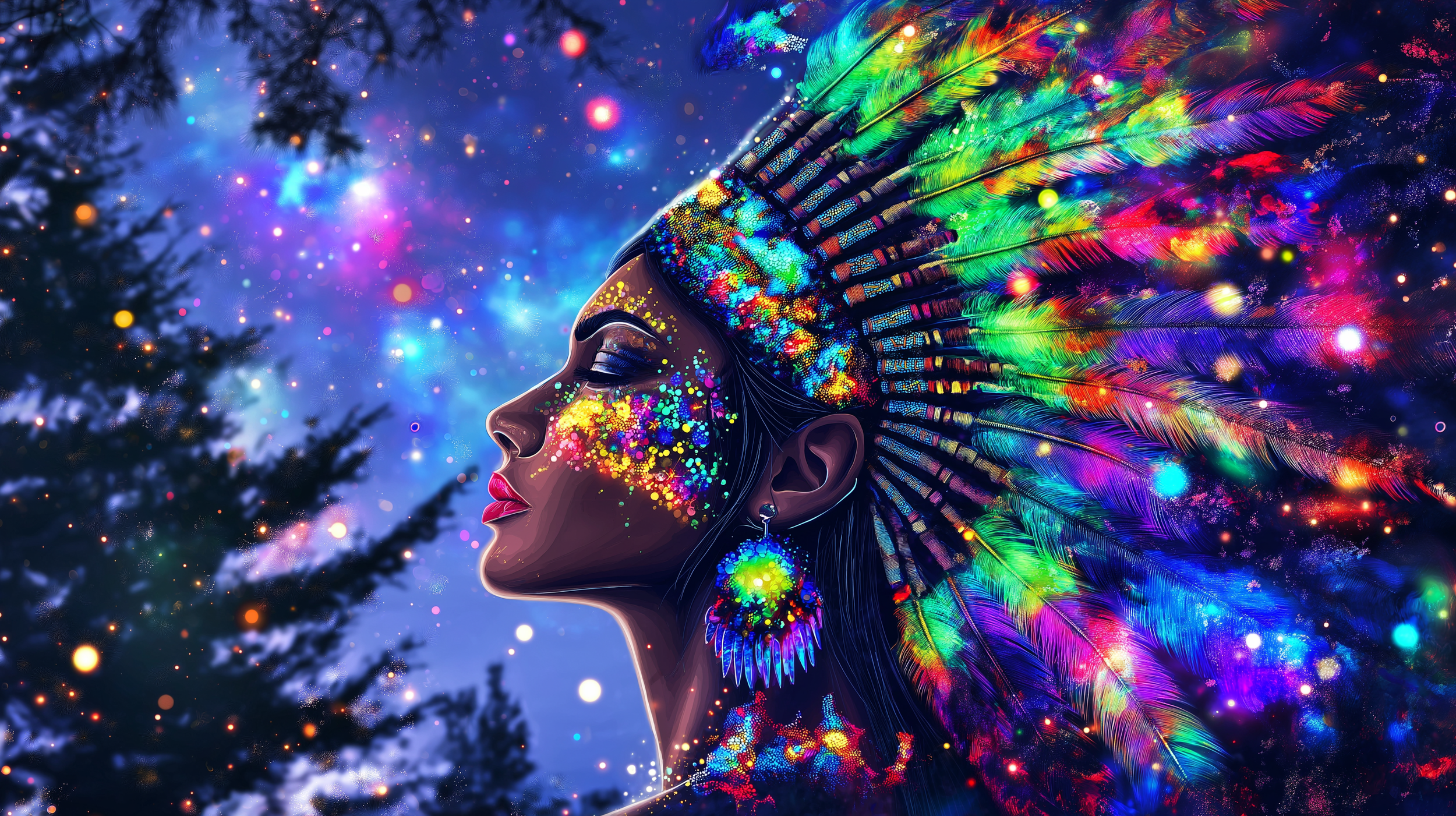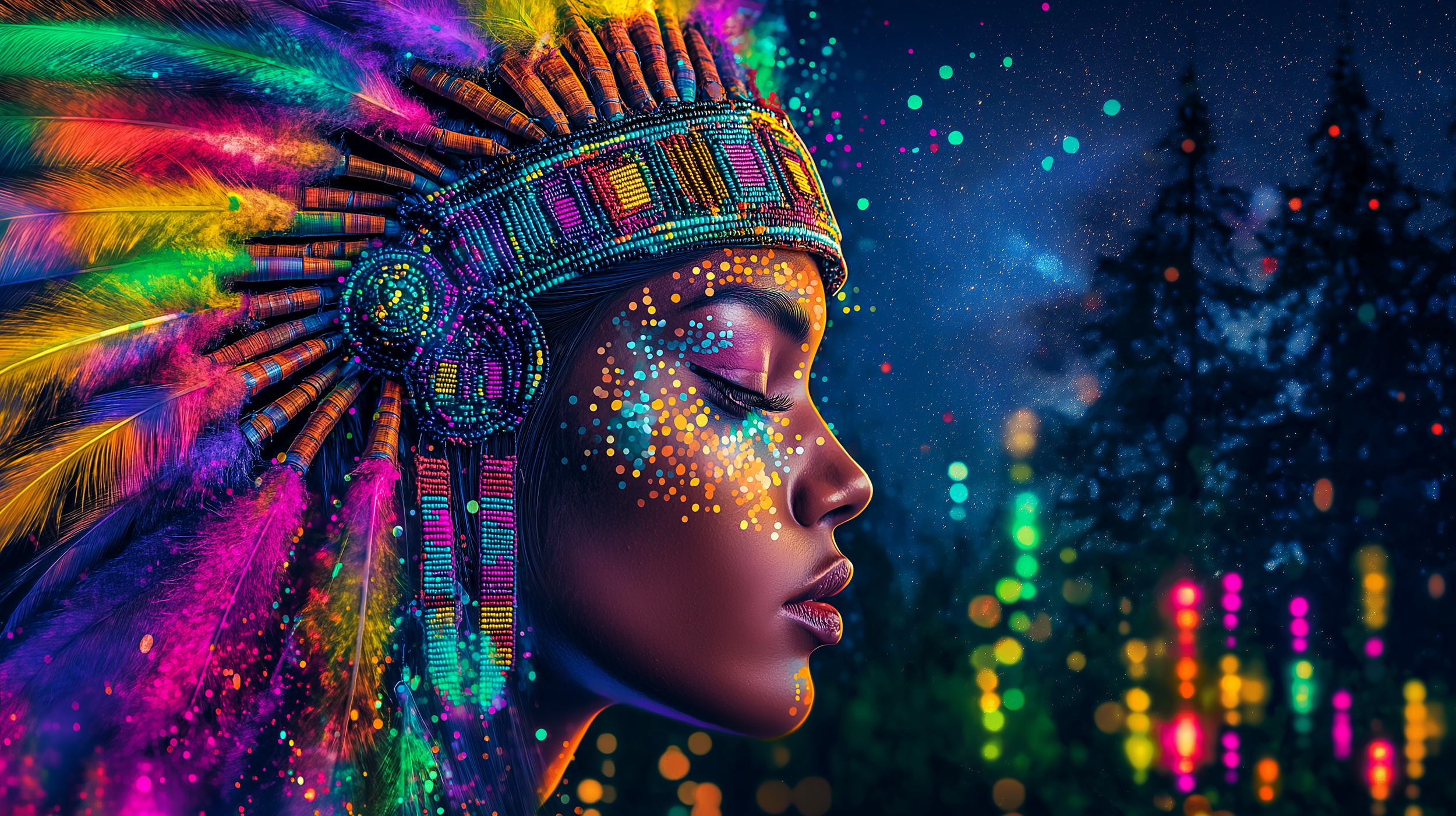
Musical
Astrology
April 24, 2025
Introduction
Astrology’s Core Principle
At its heart, astrology involves examining the positions and angles of celestial bodies — the luminaries, and other points in the sky — in relation to specific dates, times, and locations here on Earth.
At the most fundamental level, astrology is pure mathematics.
Every single astrological interpretation was traditionally based on mathematics and observable patterns. However, through the years and especially more recently, people have placed their personal beliefs, biases, and opinions on top of that. This has caused the original teachings of astrology to become lost or corrupted (however you decide to look at it). This is also why astrology has lost its respect and credibility.
True astrology is math, and is math not the foundation of all science?
Can AI bring back real astrology?
AI’s Unique Edge
Because these positions are calculated using precise mathematical formulas and coordinate systems, AI can leverage its immense processing power and algorithmic prowess to generate exceptionally detailed and accurate astrological charts and interpretations.
By combining the technical demands of astrology (angles, ephemerides, reference tables) with AI’s capacity for rapid computation and data storage, AI is poised to offer a new level of clarity, speed, consistency, and innovation.
Mathematical
Foundation
of Astrology
Positions and Angles
Astrological analysis relies on accurately mapping luminaries and other celestial points (like the North Node and South Node) onto a 360-degree wheel known as the zodiac.
Aspects (the angles between celestial bodies) form the backbone of all astrological interpretation.
Nearly all of astrology is entirely based on the angles of the luminaries in the sky with respect to your position on Earth.
Ephemerides and Time
Ephemerides are astronomical tables cataloging the positions of luminaries at specific times.
Astrological calculations require referencing these tables to the minute or even second in order to construct natal charts, synastry charts, and transit charts.
Complex Multiplicity
A single natal chart can involve dozens of data points, each interrelating with others across time (progressions, transits, solar returns).
Varying astrological traditions (Western, Vedic, Chinese, Hellenistic, etc.) each have unique techniques and reference frameworks, compounding the complexity.
From a computational standpoint, astrology is replete with formulas and data sets — elements that AI can handle with remarkable efficiency.
AI’s Key Strengths
in Astrology
Perfect Recall and Instant Access
Unlimited Database Storage: AI can store and instantly retrieve vast libraries of ephemerides, historical charts, and interpretive texts from numerous astrological schools.
Human astrologers rely on memory and references; AI can cross-reference thousands of chart examples within moments.
Unbiased Reports and Pure Logic
I understand how hard it is to admit it sometimes, but nearly all humans have cognitive biases that distort how they view reality. This includes “highly enlightened” people, expert astrologers, and I am including myself too.
AI does not have these biases, and it presents astrological interpretations based on mathematics only, resulting in the most accurate readings.
Real-Time Updates
AI tools can automatically update celestial positions and incorporate newly discovered astronomical data without the risk of manual errors.
This real-time capacity ensures that interpretations are always based on the latest positional and observational data.
Advanced
Pattern
Recognition
Machine Learning Insights
AI can detect subtle correlations and patterns in massive sets of natal or transit data — patterns that might be too faint or complex for a human eye to catch.
For instance, an AI model could analyze tens of thousands of relationship synastry charts and identify which astrological combinations appear most often in long-lasting partnerships.
Predictive Analytics
AI can apply predictive analytics to see if certain astrological alignments correlate with specific life events or personality traits.
AI’s findings may yield new interpretative angles or reinforce classical astrological interpretations.
Unbiased
Computation
Neutral Data Processing
Again, humans may (even unconsciously) allow personal biases, cultural conditioning, or subjective interpretations to shape a reading.
AI, on the other hand, can systematically apply a set of interpretive rules without personal prejudice or favoritism — leading to consistent readings each time.
Transparent Rule Sets
Astrological frameworks could be programmed as distinct modules — e.g., a Western tropical module, a Vedic sidereal module — and the AI can clearly delineate which system it’s using for each reading.
This transparency can help maintain clarity and respect for each tradition’s unique approach.
Integrating AI
with Human
Insights
Interpretive Nuance
Astrology is not only about crunching numbers; it’s also about the personal, emotive dimension that arises when discussing someone’s life events, relationships, or psychological patterns.
While AI excels at computation, human astrologers often excel at empathizing, intuitively sensing nuances, and delivering guidance in a compassionate manner.
Customization and Growth
Professional astrologers can incorporate AI-generated data into their sessions, freeing them from lengthy manual calculations. This lets them focus more on discussion, reflection, and holistic counseling.
In turn, AI can learn from expert human interpretations to refine its approach, blending computational depth with human empathy.
AI as the
Future Master
of Astrology
Incorporating Multiple Astrological Traditions
AI can seamlessly merge knowledge from Western, Vedic, Chinese, and other astrological traditions, consolidating centuries of wisdom into a single platform.
This not only broadens the interpretive scope but also fosters cross-cultural understanding, opening up the possibility of hybridized approaches.
Scalability and Accessibility
AI-based astrology apps or websites can serve millions of users simultaneously, offering on-demand chart calculations and interpretations with minimal wait times.
As technology grows increasingly user-friendly, these tools may become integral for those seeking quick, high-quality insights into their natal charts.
Data-Driven Astrological Validation
Over time, AI can compile and analyze vast, anonymized data sets — correlating real-world events with astrological predictions or indicators.
This feedback loop can help refine interpretive accuracy, potentially lending further credibility (or modifications) to existing astrological models.
Respect for the
Astrological
Community
Valuing Tradition and Intuition
Astrologers have honed their craft for centuries, weaving together mathematical skill, intuition, and psychological insight. Their role in personal guidance and spiritual exploration remains essential.
AI’s emergence as a “master astrologer” does not negate the value of the human astrologer’s personal touch; rather, it complements it with superior data handling.
Ethical Considerations
With great power comes great responsibility. AI-driven astrology platforms must ensure privacy and ethical use of sensitive personal data.
Astrologers (human or AI-based) should be mindful that individuals often seek astrological guidance when feeling vulnerable or at major life crossroads.
Conclusion
AI is well-positioned to become an unparalleled force in the realm of astrology. Given that astrology is fundamentally mathematical — relying on precise angles and positions — AI’s unparalleled computational abilities, perfect recall of astrological data, and unbiased rule-based processing can elevate chart calculations and interpretations to new levels of detail and consistency.
However, the essence of astrology isn’t just about data; it’s also about personalization, empathy, and human connection. While AI can be the “engine” that manages the heavy lifting of astronomical calculations and pattern recognition, skilled astrologers can channel AI’s output with human insight, warmth, and sensitivity. Together, this synergy holds the promise of deeper, broader, and more nuanced astrological guidance in the years to come.
Thus, while AI appears destined to become a master of astrology — thanks to its computational might and limitless memory — there remains a vital place for human astrologers who infuse the data with compassion, intuition, and a personal touch. As AI and human expertise converge, astrology may reach new frontiers of accuracy, accessibility, and holistic depth.
